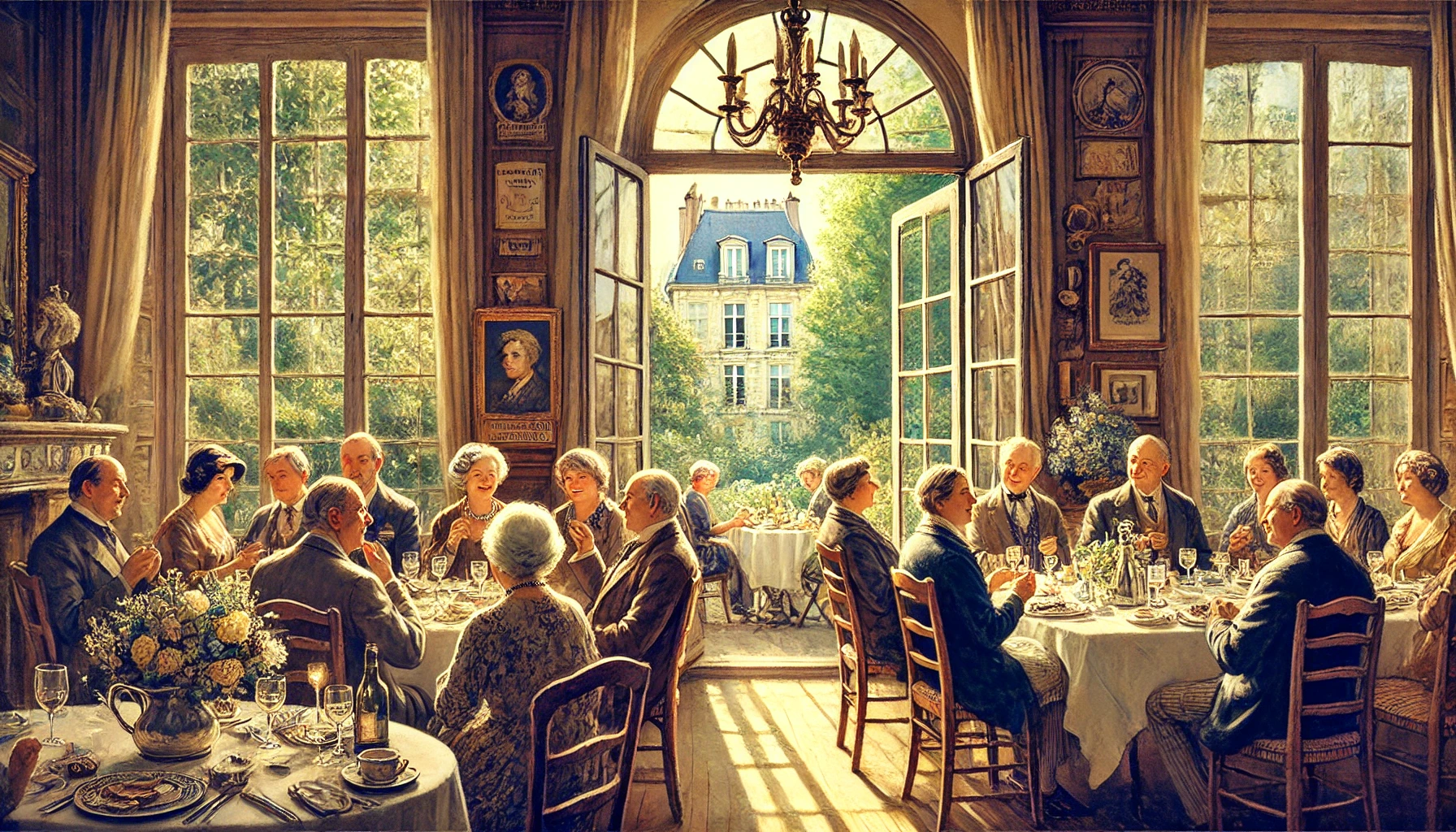Chapter 32 — An Ideal Hostess
byChapter 32 — An Ideal Hostess opens with a quiet observation of social contrast, as the narrator recounts a refined luncheon hosted by a retired stage performer in Paris. Her home, nestled just off the Rue Royale, commands a view of the Madeleine, exuding both the elegance of its location and the personality of its owner. Every detail in her apartment, from the velvet-trimmed furnishings to the soft lighting, speaks not of wealth, but of cultivated taste and a life once lived under the spotlight now devoted to beauty and thoughtful hospitality.
The luncheon itself is a study in restraint and refinement. The table, modest in size, is not overcrowded with guests or plates, allowing conversation to flow easily. Rather than overwhelming the senses with too many courses or overly rich offerings, the hostess serves a balanced and beautifully prepared Chicken A L’Espagnole—succulent, delicately spiced, and presented with care. A few thoughtfully selected hors d’oeuvres and a clear consommé complete the experience, followed by fruit and a light dessert. Wines are chosen for balance, not extravagance. The meal is not about display—it’s about ease, satisfaction, and presence.
Throughout the gathering, the hostess exemplifies warmth and attentiveness, giving each guest her undivided focus without ever dominating the conversation. The narrator notes how rare this is in modern social life, where attention is often divided and hosts seek to impress rather than connect. Instead, this woman—who once captivated audiences with her voice—now captivates her circle with grace and authenticity. There is no trace of pretension, only the quiet command of someone confident in her setting and sincere in her welcome.
This small but powerful example becomes a springboard for the narrator’s reflection on the missteps of more ostentatious societies. In particular, he contrasts this lunch with the often bloated, performative hospitality seen in American high society—where large guest lists, excessive menus, and theatrical displays of wealth eclipse the core purpose of a gathering: to foster genuine human connection. The retired artiste, by contrast, understands that the true value of hospitality lies in the atmosphere created, not in the silverware laid or the names on the guest list. Each choice she makes—from the simplicity of the food to the art on her walls—is an extension of who she is, not what she owns.
The social critique continues as the narrator touches upon the fatigue that accompanies more formal, grandiose events. In those settings, attendees often leave feeling more drained than fulfilled, having been treated as part of a spectacle rather than as participants in shared enjoyment. The Parisian luncheon, however, leaves its guests uplifted and rejuvenated, owing entirely to the hostess’s intuitive ability to balance comfort with charm. Her kind of hosting, the narrator suggests, is not just an art—it’s a fading one, threatened by the rise of social aspirations untethered from sincerity.
Moreover, the hostess’s approach underscores a valuable lesson for those navigating today’s fast-paced, status-driven social landscapes: presence matters more than presentation. In a world where invitations are often judged by venue or menu, her home reminds guests that intimacy and thoughtfulness can’t be replaced by luxury. Her ability to create a space where each guest feels both welcome and important stems from attentiveness, not expense. And in this, she reveals the soul of true hospitality—a lesson more relevant now than ever in an era of curated gatherings and filtered realities.
As the luncheon draws to a close, the narrator observes a subtle but telling detail: no one rushes to leave. There is no glance at watches, no quiet checking of phones. Instead, the guests linger in conversation, smiling, laughing softly, warmed by more than just wine or food. That, the narrator implies, is the greatest compliment a host can receive: not polite thanks, but the desire to stay.
In reflecting on the experience, the chapter offers not just an anecdote, but an aspirational model. The ideal hostess, it suggests, does not host to elevate herself but to uplift others. She doesn’t curate an experience for admiration, but for mutual joy. By stripping away the performance and embracing sincerity, she turns an ordinary luncheon into a timeless memory—and reminds readers that elegance is not about what you display, but how you make people feel.


